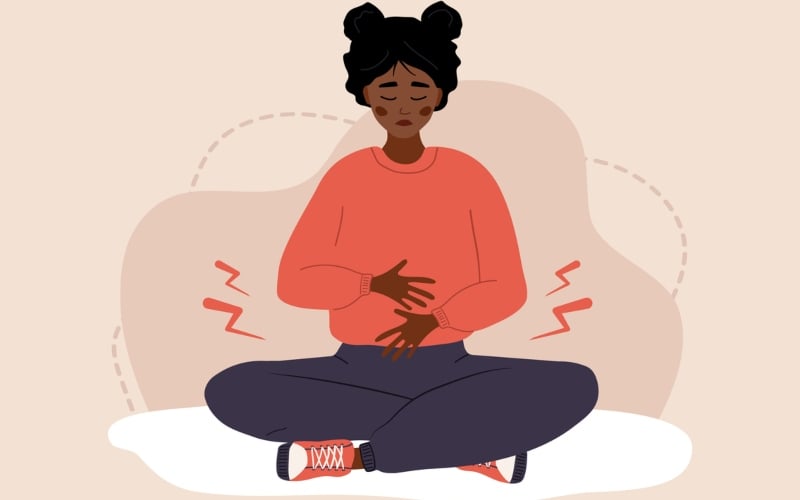I experienced my first profound trauma at age 22. I experienced my second profound trauma at age 25. I experienced a third trauma at age 39, and a fourth trauma at age 41. It was the third trauma that changed me into a completely different person.
But I wasn’t a sick person as a result of that deeply distressing experience. Instead, I became a much better version of myself. I was more compassionate, more extroverted, more driven, and more spiritual. This phenomenon is often referred to as post-traumatic growth.
When I experienced a car accident two years later, I was already acquainted with the idea that I could grow stronger after a profoundly distressing event. I was almost euphoric in the emergency room as a medical assistant picked glass out of my arm with tweezers. Having just confronted death, I was simply thrilled to be alive. I survived that accident with a few bruised ribs and some lacerations, but the psychological effects were more profound.
I spent the next several months reliving the sound of crushing metal and breaking glass. It was about a year before I was able to ride on the interstate without severe anxiety. After all, along with several other passengers, I had been trapped in the vehicle for 45 minutes before emergency responders were able to free us by sawing off the roof.
But I was also happier and more fully alive. I loved more intensely, felt pleasure more intensely and when I wrote fiction I wrote more from the heart. There was no more fear of judgment stifling my writing.
I began to tell people that everything I wrote before my personality had been rearranged by trauma seemed shallow and pointless compared to everything that I wrote afterward. I began to tell people that losing everything and fearing for my life was what finally made me a real writer.
Often post-traumatic growth may coexist with ongoing personal distress following a trauma. Growth is not a direct result of trauma, rather it is the result of the individual’s subsequent attempts to adapt to profoundly distressing circumstances. When confronted by an experience that seems completely foreign to their previous worldview, a trauma sufferer may begin to alter their overall belief system as part of the adaptation process.
This is what happened to me. And this is how trauma gave me the confidence to live my life more fully.
Let’s go back to the third trauma, and my initial experience of post-traumatic growth. I was 39 years old, living alone, unemployed, and afraid to date. Although I was a relatively average size, I was racked with insecurities about my weight and my overall appearance. Some days I would avoid going to the supermarket because I did not want to face the cashier or the gaze of other customers. Applying for a job was simply out of the question, as I certainly could not bear the thought of an interview. I couldn’t imagine having a single date much less being in a relationship.
Suddenly a medical crisis landed me in the hospital for an extended period of time. My parents had to cancel my lease and move me out of my apartment while I suffered in a hospital 45 minutes away. I was sicker than I’d ever been in my life.
My hospital room had a view of the parking lot. Each day I spent several hours watching strangers get in and out of their cars, sneak cigarettes, hold hands with their loved ones, and generally enjoy the type of normal life that I thought I had lost forever. I was sick with grief and envy. I felt utterly alone. On my worst day, I begged for death out loud.
I thought I would never recover, but I did.
I had to start my new life from scratch. I rented a cheap one-bedroom apartment in the city, and I began getting up at 4:30 in the morning to write. After years of saying I wanted to write books but never getting past more than a few pages, I finished my first novel in 8 weeks.
I started going to the gym and began hitting the nautilus at 6:30 six mornings per week. My body transformed effortlessly. One day I was walking down the street and some college students cat-called me. I had to turn around to make sure that there was nobody behind me. Then I realized that I was the one with great legs. For the first time in a long time, I smiled without the least bit of self-consciousness. For the first time in a long time, I was fully inhabiting my body.
I started with an internship at a local nonprofit. Then I applied for a data management job at a large hospital. With no recent traditional work experience to speak of, I aced the interview and was offered the job a week later. Five months later I was recognized as the most productive member of the team by the numbers. Not much later I was promoted to a senior role ahead of coworkers who had more than ten years of experience.
I began dating the man I would eventually marry.
I was athletic, perfectly coiffed, and always well-dressed. Strangers approached me at work to ask me who my stylist was or where I bought my clothes. I was always friendly to them. People treated me as though I had probably never suffered a day in my life. They thought I had always been charmed. Why wouldn’t they? After all, I was sharp, poised, and brimming with confidence.
It was a secret that not too long before that I had been begging for death alone in a hospital room. It was also a secret that prior to that traumatic event I had been a completely different person: anxious, racked by insecurity, and so lacking in confidence that I could hardly go to the supermarket much less apply for a job.
My long hospitalization presented me with a situation that shook my foundations to the core. Severe illness and total loss altered my perspective on suffering. Compared to the profound pain of that experience, all my previous insecurities, anxieties, and hang-ups seemed insignificant. The first day of my new life was also my first day of freedom.
“Letting go gives us freedom, and freedom is the only condition for happiness. If, in our heart, we still cling to anything — anger, anxiety, or possessions — we cannot be free.” — Thich Nhat Hanh
My confrontation with death deepened my appreciation for life. Giving up and begging for death served as a renunciation of everything that I had so foolishly held dear before. The prison of anxiety that I lived in before I lost it all was rooted in self-centeredness. Facing the end of my life, I was forced to look beyond myself. Total surrender brought me the strength to completely transform my life.
Please keep the dream alive by supporting me on Patreon. I am thrilled to be able to create gut-wrenching metaphysical fiction under the pseudonym, Nyle Kai.
—
This post was previously published on medium.com.
***
You may also like these posts on The Good Men Project:
 White Fragility: Talking to White People About Racism
White Fragility: Talking to White People About Racism  Escape the “Act Like a Man” Box
Escape the “Act Like a Man” Box  The Lack of Gentle Platonic Touch in Men’s Lives is a Killer
The Lack of Gentle Platonic Touch in Men’s Lives is a Killer  What We Talk About When We Talk About Men
What We Talk About When We Talk About Men —
Photo credit: Anastasiia Malai on Unsplash
The post Trauma: A Love Story appeared first on The Good Men Project.
Original Article










